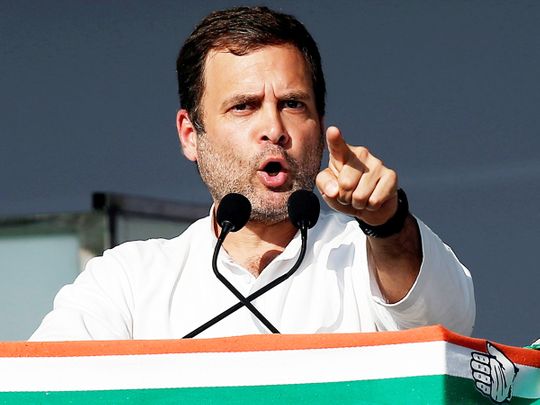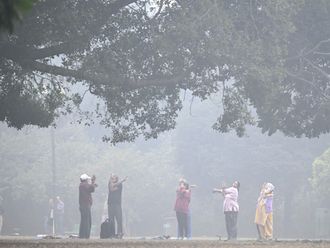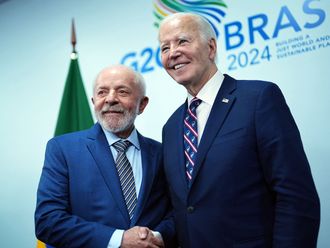
Opposition leader Rahul Gandhi on Monday vowed a "final assault on poverty" in India if elected prime minister in May, promising a minimum income for tens of millions of the country's poorest.
The Congress Party leader, broadly seen as trailing the incumbent Narendra Modi in the race for top office, described the scheme to pay 50 million Indians a guaranteed basic income of $1,000 (Dh3,670 or approximately INR 70,000) a year as the largest of its kind on Earth.
The sop to voters comes less than three weeks before Indians start casting their ballots in mammoth elections that stretch nearly six weeks until May 19.
Modi's Bharatiya Janata Party routed Congress at the last general election in 2014 and his supporters hope the Hindu nationalist leader can deliver another crushing victory.
But Gandhi is trying to close the gap, promising among other things a safety net for Indians living beneath the poverty line in the world's second-most populous nation.
"People have suffered in the last five years. We will give justice to them," the scion of the Gandhi-Nehru dynasty told reporters in Delhi.
"It is on this day that the Congress Party launched its final assault on poverty. It will be the world's largest minimum income scheme."
Gandhi, whose father, grandmother and great-grandfather were all prime ministers, has attacked Modi's economic record, accusing him of failing to create jobs for the nation's youth or aid desperate farmers.
His proposed cash handouts for the poor are seen as modelled loosely on universal basic income, a concept attracting growing interest around the world.
UBI - supported by Facebook founder Mark Zuckerberg among others as a way to reduce inequality - involves people being given a flat lump sum by the state instead of subsidies and social security payments.
It has been tried out in several countries including Finland and Kenya, and has been promised by the ruling party of the small northern Indian state of Sikkim as well as Italy's new populist government.
Modi has already unveiled a raft of sweeteners for farmers and the middle class in Asia's third-largest economy, hoping to deflect opposition salvos over his 2014 campaign promise to create "good days" for all.












